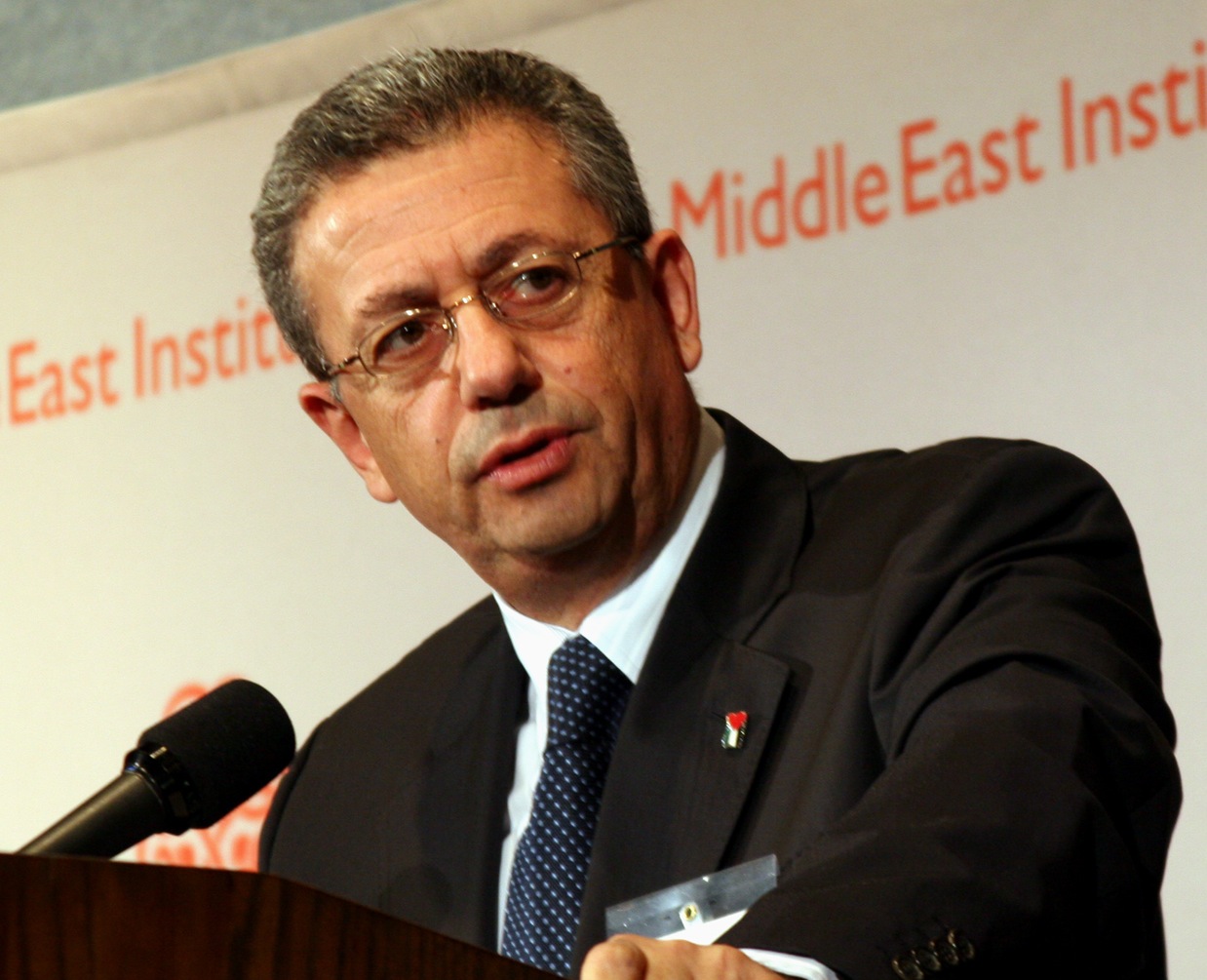Palestinian Figure Fears Israeli Election Hinders Peace Efforts
Mustafa Barghouti, a leading voice for a non-violent solution to the Palestinian-Israeli conflict, says the United States can still foster change in the region.
Jul 31, 20208.5K Shares859.3K Views
Mustafa Barghouti (Wikimedia Commons)
A leading Palestinian force for peace and nonviolent resistance to the Israeli occupation voiced alarm over Israel’s national election Tuesday, in which conservative** **parties enjoyed their strongest showing in years, and sketched out advice for President Barack Obama as the U.S. wades back into the thick of Israeli-Palestinian peace negotiations.
“This right-wing shift comes at a time when the two-state solution is gasping” to survive, said Mustafa Barghouti, a member of the Palestinian parliament and former minister in the short-lived Fatah-Hamas unity government of 2007 who has long represented a secular, democratic strain of Palestinian politics, often at the cost of his own influence. He spoke on Tuesday with a reporter in the office of Sen. John Kerry (D-Mass.), the chairman of the Senate Armed Services Committee, while waiting for a meeting with the senator. “If the [United States] wants to change the situation,” Barghouti said, “it still can.”
Illustration by: Matt Mahurin
In Israel on Tuesday, the centrist Kadima Party won 28 seats in a surprise showing, edging out the 27 seats of the right-wing Likud Party. Both Kadima leader Tzipi Livni and Likud leader Benjamin Netanyahu declared victory, but right-leaning factions appeared to have captured about 64 seats in the 120-seat Knesset. Among the more striking results of the election, coming on the heels of a three-week Israeli attack on Hamas forces in the Gaza Strip that killed about 1300 Palestinians, was the strong showing of the far-right Yisrael Beiteinu Party of Avigdor Lieberman, who advocates the expulsion of Arab citizens of Israel. A fringe party for years, Yisrael Beiteinu won 15 seats, making it a larger force in the next Knesset than the left-wing Labor Party that ran Israel for the first half of the Jewish state’s existence. Yisraeli Beiteinu has not ruled out joining a coalition government with either Kadima or Likud, and its leader, Avigdor Lieberman, met Wednesday with Livni.
Against the rightward shift in Israeli politics, Barghouti sketched out a dire future for Israeli-Palestinian relations if the U.S. does not actively broker a two-state resolution to the 60-year crisis. “Probably, this term of Obama is the last opportunity,” he said. Thanks to recent and rapid demographic shifts in Israel, the West Bank and Gaza, within the next several years there are likely to be more Palestinians in the area than its roughly six million Jews, which has made a two-state solution a stated imperative for mainstream Israeli politicians for two decades, lest a minority of Jews dominate a majority of Arabs. The only alternatives, he said, were “apartheid… and it’s nothing for Israel to be proud of, the last apartheid system” or “a one-state solution, which many Israelis will not want.”
The appointment of former Sen. George Mitchell as Obama’s Middle East envoy was a positive sign, Barghouti said. The most important step for peace that Mitchell could recommend would be “to implement his recommendations of 2001 and block all settlements” in the West Bank. In 2001 Mitchell issued a report at the behest of outgoing President Bill Clinton urging Israel stop settlement expansion if it wished to achieve peace with a Palestinian state-in-waiting.
“We need a real plan to end the occupation,” Barghouti said. “We don’t need another peace process that leads to nothing.”
Settlement construction in the West Bank is among the most significant impediments to peace and independence from the Palestinian perspective. Barghouti cited statistics from a sheaf of papers he held: Palestinian GDP per capita is about $1,000 annually compared to $20,000 for Israelis, he said, adding that Palestinians had reduced access to water compared to West Bank settlers. The CIA puts Israeli GDP per capitaat about $29,000, with Palestinian GDP per capita— for both the West Bank and Gaza — at $2900. The U.S. foreign development agency, USAID, has warnedthat about half of Palestinians in the West Bank have access to about 30 liters of water a day; the World Health Organization’s recommended daily allowance per capita is 60 liters. “We are not able to drive or walk today on many of the major roads” in the West Bank, he said.
M.J Rosenberg, policy director for the Israel Policy Forum, a progressive pro-Israel lobby, agreed that the survival of a two-state solution depends on the United States. “There isn’t a damn bit of different difference between Livni, Barak and Netanyahu anyway,” Rosenberg said, referring to the leaders of the Kadima, Labor and Likud parties. “The element that matters is the element of activism from President Obama. If he’s determined and pushes an Israeli-Palestinian agreement, he’ll get one. It is entirely up to the U.S.”
Barghouti has been an outsider in Palestinian politics for most of his entire career, with an uneasy relationship to the dominant parties. A rare figure in the Palestinian national movement who dissented both from the Palestine Liberation Organization and its more radical alternatives, Barghouti instead focused on the development of civil society organizations in the West Bank and Gaza Strip before founding a secular democratic party, the Palestinian National Initiative, in 2002. He unsuccessfully ran for the presidency of the Palestinian Authority in 2006 on an anti-corruption platform, coming in a distant second to Mahmoud Abbas.
Yet Barghouti has been a fierce critic of the Israeli occupation. During the Israeli war on Gaza in December and January, he wrotean anguished dispatch for the Washington Note, a popular blog run by Steve Clemons, a senior fellow at the New America Foundation, called “Palestine’s Guernica.” Barghouti inveighed against the “myths of Israeli victimhood and wrote, “it is the apathy of the world and the inhumane tolerance of Palestinian suffering which allows this to occur.” He characterized Livni, the last government’s foreign minister, as cynically using the war — or “bathing in Palestinian blood,” in Barghouti’s words — to send the message, “now that you know I am as ruthless as Bibi Netanyahu.” Either Lipni or Netanyahu will be Israel’s next prime minister, between whom he said he sees little difference:”one wears makeup, the other not.”
Some have criticized Barghouti for appearing to be a political chameleon, adopting different perspectives to suit different audiences. “His message is not always consistent, and often seems to respond to the prevailing mood of the day,” said Hussein Ibish, a senior fellow with the American Task Force on Palestine, a lobby group. Even so, Ibish added, “Barghouti’s mercurial views serve as a useful barometer of prevailing Palestinian public opinion in the West Bank, especially among secular, grassroots activists who are fed up with the [Palestinian Authority's] inefficiencies and failures and who are skeptical about Hamas’ fanaticism.”
Barghouti’s trip to the U.S. was sponsored by the Institute for Middle East Understanding, a California-based Palestinian advocacy organization, with assistance from the New America Foundation. On the week-long trip, which began Monday, Barghouti met with Reps. Jan Schakowsky (D-Ill.), Dennis Kucinich (D-Oh.) and Andre Carson (D-Ind.), in addition to Kerry. He did not as of Tuesday evening have an appointment scheduled with President Obama but said he would still seek one.
“His approach is to bring change everywhere,” Barghouti said. “The question is, will there be change in Palestine?”

Hajra Shannon
Reviewer
Latest Articles
Popular Articles

